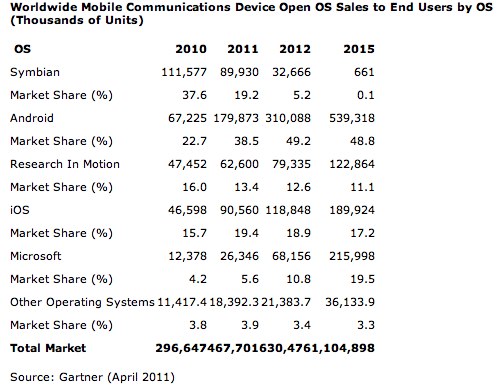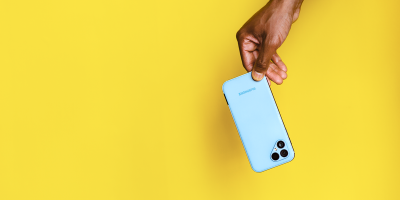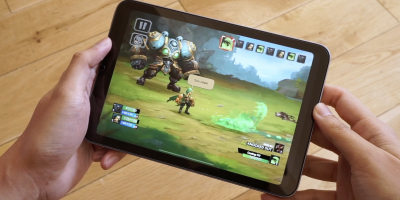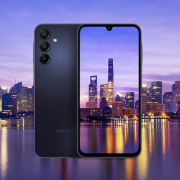Gartner has released new smartphone market research figures that closely mirror what IDC put out not too long ago. The gist of it: Android will take a convincing lead worldwide while Symbian sales will begin slipping until it’s no longer in the market. Of course, with the downfall of Symbian must come the rise of Windows Phone 7 as Nokia will be adopting Microsoft’s mobile operating system for mid- and high-range devices.

Taking a look at the numbers themselves, they expect Nokia to drop down to 19.2 from 37.6%. In contrast, Android is expected to rise from 22.7% to a dominant 38.5% to give it the top spot worldwide. Microsoft will get a bit of a bump, as well, but their jump from 2010 to 2011 will be neglible – they predict Windows Phone 7 won’t be a force until 2015.
Finally, iOS will look to get some of its share back while RIM will lose a few points giving iOS the number two spot by a very slight margin – 19.4% compared to Symbian’s 19.2%. The full figures can be seen in the graphic above. The trend continues, folks, and we don’t expect it to change any time soon. Full press details are straight ahead.
Gartner Says Android to Command Nearly Half of Worldwide Smartphone Operating System Market by Year-End 2012
Egham, UK, April 7, 2011- Worldwide smartphone sales will reach 468 million units in 2011, a 57.7 percent increase from 2010, according to Gartner Inc. By the end of 2011, Android will move to become the most popular operating system (OS) worldwide and will build on its strength to account for 49 percent of the smartphone market by 2012 (see Table 1).
Sales of open OS* devices will account for 26 percent of all mobile handset device sales in 2011, and are expected to surpass the 1 billion mark by 2015, when they will account for 47 percent of the total mobile device market.“By 2015, 67 percent of all open OS devices will have an average selling price of $300 or below, proving that smartphones have been finally truly democratized,” said Roberta Cozza, principal analyst at Gartner.
“As vendors delivering Android-based devices continue to fight for market share, price will decrease to further benefit consumers”, Ms. Cozza said. “Android’s position at the high end of the market will remain strong, but its greatest volume opportunity in the longer term will be in the mid- to low-cost smartphones, above all in emerging markets.”
Gartner predicts that Apple’s iOS will remain the second biggest platform worldwide through 2014 despite its share deceasing slightly after 2011. This reflects Gartner’s underlying assumption that Apple will be interested in maintaining margins rather than pursuing market share by changing its pricing strategy. This will continue to limit adoption in emerging regions. iOS share will peak in 2011, with volume growth well above the market average. This is driven by increased channel reach in key mature markets like the U.S. and Western Europe.
Research In Motion’s share over the forecast period will decline, reflecting the stronger competitive environment in the consumer market, as well as increased competition in the business sector. Gartner has factored in RIM’s migration from BlackBerry OS to QNX which is expected in 2012. Analysts said this transition makes sense because RIM can create a consistent experience going from smartphones to tablets with a single developer community and – given that QNX as a platform brings more advanced features than the classic BlackBerry OS – it can enable more competitive smartphone products.
Gartner predicts that Nokia will push Windows Phone well into the mid-tier of its portfolio by the end of 2012, driving the platform to be the third largest in the worldwide ranking by 2013. Gartner has revised its forecast of Windows Phone’s market share upward, solely by virtue of Microsoft’s alliance with Nokia. Although this is an honorable performance it is considerably less than what Symbian had achieve in the past underlying the upward battle that Nokia has to face.
Gartner analysts said new device types will widen ecosystems. “The growth in sales of media tablets expected in 2011 and future years will widen the ecosystems that open OS communications devices have created. This will, by and large, function more as a driver than an inhibitor for sales of open OS devices,” said Carolina Milanesi, research vice president at Gartner.
“Consumers who already own an open OS communications device will be drawn to media tablets and more often than not, to media tablets that share the same OS as their smartphone,” Ms. Milanesi said. “This allows consumers to be able to share the same experience across devices as well as apps, settings or game scores. At the same time, tablet users who don’t own a smartphone could be prompted to adopt one to be able to share the experience they have on their tablets.”
Note *: An open OS makes a software developer kit (SDK) available to developers, who can use native application programming interfaces (APIs) to write applications. The OS can be supported by a sole vendor or multiple vendors. It can be, but does not have to be, open source. Examples are BlackBerry OS, iOS, Symbian, Android, Windows Phone, Linux, Limo Foundation, WebOS and bada.
Gartner’s detailed forecast is available in the report “Forecast: Mobile Communications Devices by Open Operating System, Worldwide, 2008-2015.” The report is available on Gartner’s website at http://www.gartner.com/resId=1619615.











First!
Take that Apple :)
You know after hundreds of comments for the last 2 1/2 years on Phandroid I have never felt the need to type “first”.
Oh please … just for fun :)
Cheers !!!
Take that apple? So out of the possibly 60 or so android phones out on the market, compared to the iPhone 4 and 3gs, it’s not that big of an accomplishment. I sure hope that they can outsell the 300 dollar iPhone 4 when Android gives away free phones.
But still, Android is the winner in terms of market share / user base:)
More people love Android …
More people use Android …
See the numbers, that’s the fact!
That’s the whole point of this article.
Big or not, winning is winning!
Hail to the victors! Damn the defeated! :)
1. The 3GS is $49.
2. Apple should’ve licensed the OS. Of course the winning OS is going to be on more handsets…just as the case was for Blackberry and Symbian.
3. iOS gained its market share before Android came along. Since then, iOS has been stagnant.
4. It doesn’t matter how many Android phones there are…if someone is in love with Apple/iOS, then they will buy an iPhone. They can be had for cheap as well.
and who’s fault is that? exactly.
iPhone doesn’t have anyone to compete with in the iOS ecosystem, so of course it gets sold a lot more than Android phones that have to compete with each other. If there were 100 different iPhones being released each year, don’t you think each model will sell less?
But all this is irrelevant for the consumer. They get to choose whatever phone design and hardware they want, and and whatever price they want, and they still get to benefit from the whole Android’s ecosystem of apps.
can’t agree with the total phase out of symbian by 2014, especially when it’s globally related. i think gartner overestimates the growth in google, and underestimate the growth in blackberry. this guy looks in the past for conviction. i don’t buy it.
http://xasu.blogspot.com/
Android passed Symbian 2 quarters ago.
I guess the once mighty Palm must be in the “other” category. I carried those phones for most of a decade until they threw out the old OS. It needed updating, but they took away everything I loved about it. Now Android has given most of it back and then some. The great thing about Android, is that anything is possible.
So Android has taken Symbian’s (Nokia’s) market share, the low end Nokia phones that nobody wanted after the latest smart phone wave. So all the free phones people were stuck with and nobody really ‘chose’ are what android beat? Plus the latest android star the Thunderbolt is huge and much heavier with it’s battery, yet it gets 2.5 hours of battery life (1/3 iphone’s)? The only options are spend more money, after 250, on an even heavier battery. Or they recommend you to turn off 4g, the reason you paid extra for a 4g phone.. All my huge phandroid friend’s phones reset all the time, gps may or may not work, flash video doesn’t always work for them, it’s a mess. And app wise, I don’t see them catching up in the current state of the os, if windows mobile has more quality apps like netflix etc before android that’s a fail. I like the philosophical goals of android but the execution is thus far infested with errors. Now android will take security precautions when they didn’t want to at first, the whole application of their philosophy wasn’t well thought out.